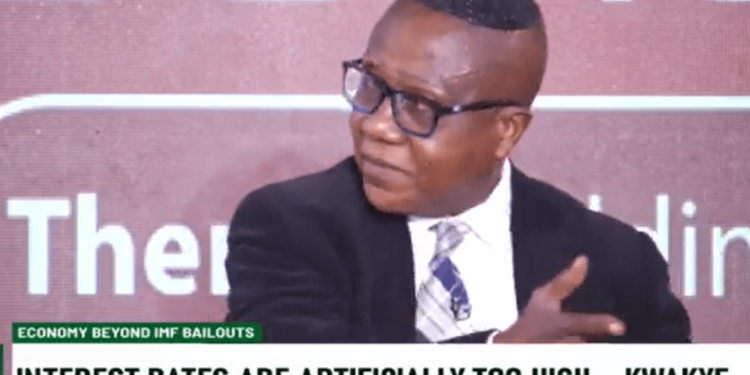Stabilising the Cedi with the cash received from the International Monetary Fund (IMF) is not sustainable, the Director of Research at the Institute of Economic Affairs (IEA) Dr John Kwaye has said.
To him, Ghana must rely heavily on its natural sources for foreign exchange to stabilise the local currency.
In order to utilise the natural resources, he said, Ghanaian authorities must work to ensure that Ghana takes full ownership of the resource wealth.
In a post on his X platform, Dr Kwakye said “Relying on IMF disbursements to bolster the cedi isn’t sustainable. The US$360 mn inflow is peanuts compared with our FX needs. Taking ownership of our natural resource wealth to support the cedi is the only sustainable option.
His comments follow a recent report that a series of positive developments – including a significant IMF disbursement, a deal struck with external commercial creditors and tapered corporate demand – have collectively helped to ease pressure on the cedi (GH¢).
The Cedi is reported to have held steady against the US dollar (US$), buoyed by improved market sentiments as FX demand eased.
This stability follows the IMF board’s approval and subsequent release of funds after the second review of its 36-month Extended Credit Facility (ECF).
Recently the Bank of Ghana received the $360 million third tranche of the International Monetary Fund (IMF). The central bank received the cash by the close of Monday, July 1.
The Finance Minister Dr Mohammed Amin Adam had announced on Monday that the third tranche was expected to hit the Bank of Ghana account by the close of today Monday, July 1.
He said this during a joint IMF, Ministry of Finance, and BoG press conference in Accra on Monday, July 1.
Addressing the press , he said “The Cedi has been under pressure in recent times, however, the exchange rate has largely stabilised since 2023. Year-to date depreciation of the cedi against the US$ is 18.4% compared to 22.0% recorded in the same period in 2023.
“The key measures we are implementing to deal with the recent depreciation include: tight monetary policy by the BoG; deepening the ongoing fiscal consolidation programme; intensifying the gold-for-oil programme and the BoG’s gold-for-reserves programme; and anticipated Forex inflows from disbursements from our multilateral and bilateral institutions as well as private sector financial institutions.
“These include the IMF 3rd Tranche of US$360 million which will be disbursed to Ghana by close of business today Monday 1st July 2024, following the IMF Executive Board approval of the 2nd Review last Friday; the IMF 4th Tranche of US$360 million expected in Q4 of 2024 after IMF Executive Board approves the 3rd Review; the World Bank DP02 tranche of US$300 million expected in Q3 of 2024; and disbursements from bilateral institutions/financial institutions including the World Bank GARID Project (US$150 million), EBID facility of US$200 million for SME support, and anticipated proceeds from 2024/2025 Cocobod syndication of up to US$1.5 billion in Q4 of 2024.”


